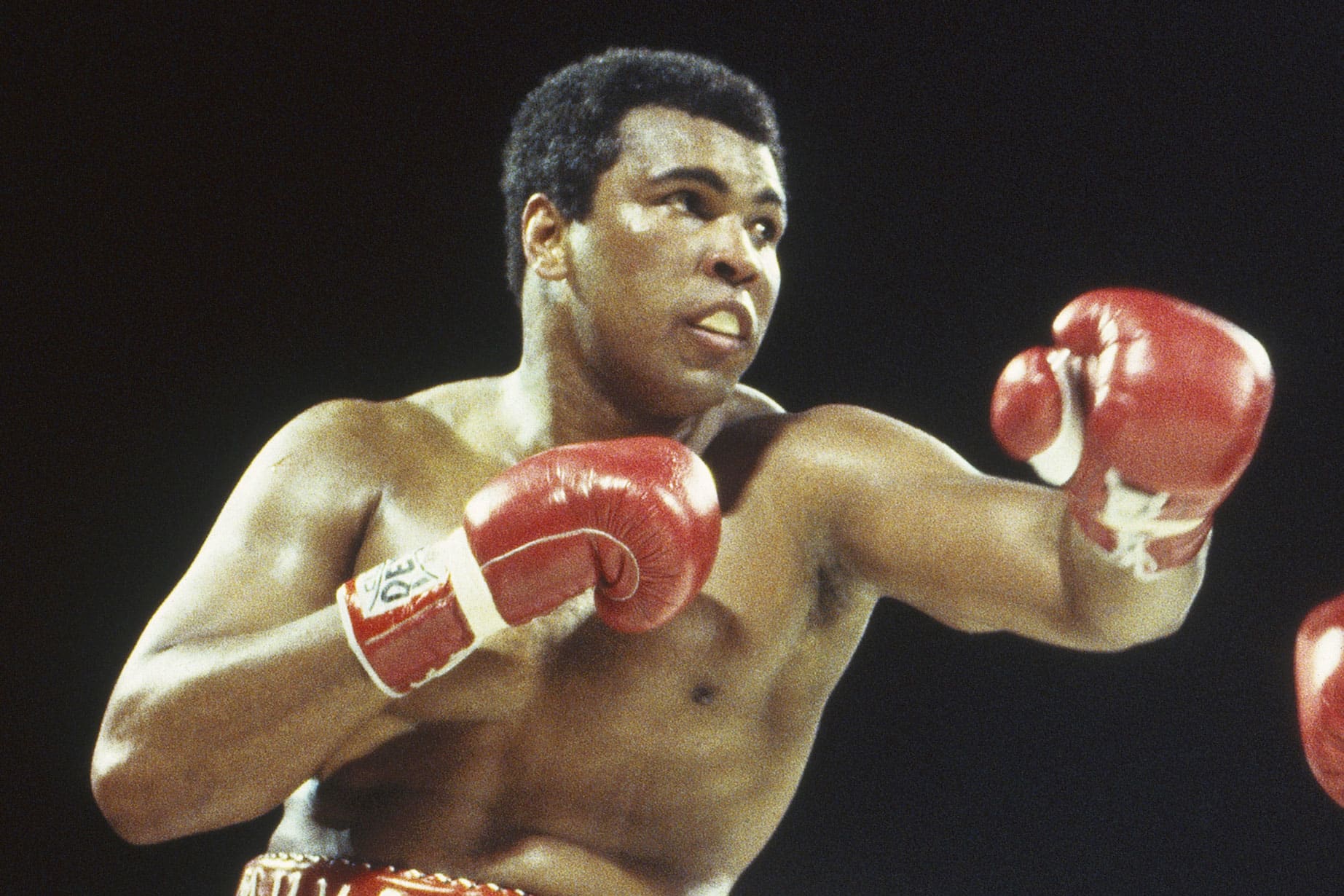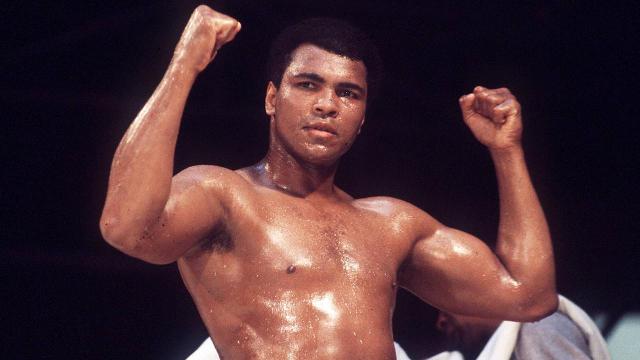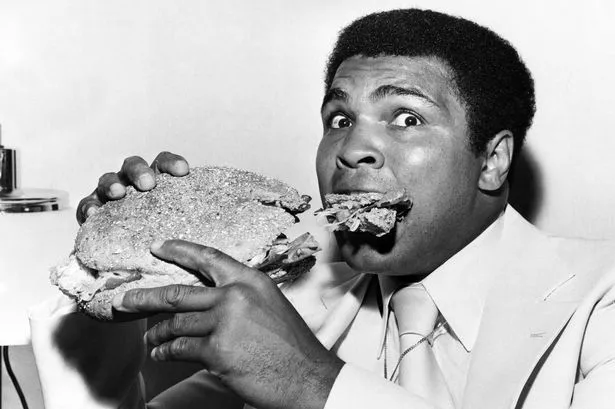How Much Did Muhammad Ali Weight? You’d think Muhammad Ali, the titan of the boxing world, weighed as much as a mountain. This isn’t far from the truth, considering his heavyweight status. Like his boxing style, his weight was an integral part of his career.
Ali weighed around 210-220 pounds in his prime, landing him squarely in the heavyweight division. His weight influenced his performance, impacting his strength and agility.
Over time, his weight fluctuated, reflecting his life and career changes. So, let’s dive into the scales to discover more about the weight of the Greatest, Muhammad Ali.
Contents
How Much Did Muhammad Ali Weight?

Muhammad Ali’s weight fluctuated throughout his boxing career, depending on the specific fight and period. Here’s a breakdown:
1. Early Career (1960-1964):
- As an amateur, he competed in the light heavyweight division, around 192 pounds (87 kg).
2. Heavyweight Champion (1964-1967):
- During his prime, his weight ranged from 201 pounds (91 kg) to 214 pounds (97 kg).
3. Exile and Comeback (1967-1970):
- Due to his refusal to be drafted into the Vietnam War, Ali was stripped of his boxing titles and banned from fighting for three years. During this time, he put on some weight and fought exhibitions at around 215-225 pounds (97-102 kg).
4. Later Career (1970-1981):
- Upon his return to professional boxing, his weight continued to fluctuate between 215 pounds (97 kg) and 230 pounds (104 kg).
Therefore, Muhammad Ali’s weight varied between 192 pounds (87 kg) in his early amateur days and 230 pounds (104 kg) in his later career.
The Heavyweight Championship Fights and Ali’s Weight:

When it comes to the heavyweight division, weight plays a significant role in a boxer’s performance and success in the ring. Muhammad Ali, being a heavyweight champion, understood the importance of maintaining an optimal weight throughout his career. Let’s find out how Ali’s weight fluctuated and its impact on his legendary fights.
1. Ali’s Weight at Different Stages:
Throughout his career, Ali’s weight went through various phases. Here’s a glimpse of his weight journey:
| Year | Weight (pounds) |
|---|---|
| 1960 | 178 |
| 1967 | 210 |
| 1974 | 216 |
| 1980 | 217 |
As you can see, Ali’s weight increased gradually, most likely due to muscle gain from his rigorous training and dietary practices. This weight gain allowed him to compete in the heavyweight category continuously, showcasing his adaptability and tactical acumen in the ring.
2. The Heavyweight Championship Fights:
During the peak of his career, Ali was dubbed “Prime Ali,” and he typically weighed between 210 to 220 pounds. One of his notable fights at this weight was against the rugged Argentine, Oscar Bonavena. Despite a challenging battle that went on until the 15th round, Ali knocked down his opponent three times, securing a victory.
Another momentous fight in Ali’s career was against the formidable Joe Frazier. Weighing in at 215 pounds, Ali engaged in an intense battle with Frazier, resulting in one of the greatest rivalries in sports history.
3. Leveraging Weight in Boxing:
Ali’s weight played a crucial role in dictating his fighting style, strength, and agility. While he wasn’t a weight lifter, his strength training regimen primarily consisted of working the heavy bag. This approach allowed him to hold his ground against larger, stronger opponents such as Ken Norton and George Foreman.
Ali’s Weight in His Later Years and Retirement:

In his later years and retirement, Muhammad Ali’s weight continued to fluctuate, reflecting the natural changes that occur as an athlete age. While he may not have been as consistently light and agile as he was in his prime, Ali still maintained a remarkable level of athleticism and strength.
During this phase of his career, Ali’s weight hovered around the 214-pound mark, which many experts consider to be his prime weight. It’s important to note that Ali was not a weight lifter in the traditional sense. Instead, his strength training primarily consisted of working the heavy bag, which allowed him to develop the explosive power and endurance necessary for boxing.
As Ali aged, he adapted his fighting style to accommodate the changes in his physical abilities. While his speed may have diminished slightly, he compensated by incorporating more clinching and leaning techniques into his strategy. This allowed him to nullify his opponents’ attacks and control the pace of the fight.
Despite these adjustments, Ali still possessed formidable skills and attributes that set him apart. His fast and accurate jab, along with his adept use of feints and rhythm changes, remained key weapons in his arsenal. Additionally, his unparalleled sense of distance and timing enabled him to deliver precise and devastating blows.
In retirement, Ali’s weight may have fluctuated further due to the natural aging process and lifestyle choices. However, his legacy as one of the greatest heavyweight champions of all time remains untarnished. The careful management of his weight throughout his career, combined with his unwavering dedication to strength and technique, contributed to his enduring success in the ring.
Frequently Asked Questions:
Ali’s nutritional habits included a balanced diet rich in proteins and carbs. His training regimen involved rigorous boxing drills, long-distance running, and strength conditioning. He’d stick to this routine to maintain his optimal performance.
You’re curious about Ali’s health related to his weight. No, Muhammad Ali didn’t have weight-related health issues. However, he battled Parkinson’s, a condition exacerbated by his boxing career, not his weight. Ali’s medication aimed to alleviate this.
Yes, Ali’s weight significantly influenced his fighting style. His weight management allowed for speed and agility in the ring, setting him apart from heavier opponents. He’d “float like a butterfly, sting like a bee.”
Conclusion:
So, you’ve been pondering about the legendary Muhammad Ali’s weight, haven’t you? During his prime, he tipped the scales at a robust 215 pounds, a Herculean figure for a boxer!
Like a chameleon, his weight fluctuated over time, impacting his performance in the ring. But let’s be honest, Ali’s prowess was indomitable whether he was a lightweight or a heavyweight.
It’s safe to say the weight of his legacy far outstrips any number on a scale.

Santhan, known to many as Linda, combines her personal training expertise with exceptional motivational coaching skills. Her articles are not just informative but also incredibly inspiring, encouraging readers to take action and pursue their fitness goals. Linda’s unique approach to writing integrates practical fitness guidance with motivational elements, making her content both useful and uplifting.
